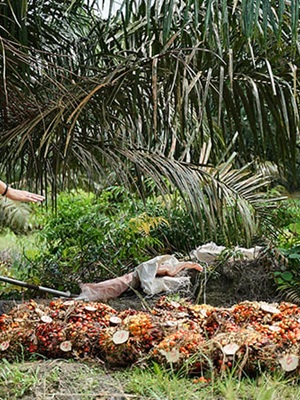As Hong Kong strives for sustainable development, establishing an effective recycling management system that encourages proper waste disposal and maximizes resource recovery is crucial. However, there are significant challenges that need to be addressed to ensure progress in waste and recycling management.
Food waste is the largest component of Hong Kong's Municipal Solid Waste (MSW), accounting for approximately 30% or 3,302 tonnes per day. Unfortunately, only 6% of this food waste is currently being recycled, amounting to around 71.8 thousand tonnes annually. This means that a mere 22 days' worth of food waste in Hong Kong is being recycled, while the rest—343 days' worth—is sent to landfill. It is disheartening that so much food is wasted instead of being reused or recycled. Although Hong Kong's two largest Organic Resources Recovery Centres, O · PARK1 and O · PARK2, have a combined design capacity of 500 tonnes per day, this capacity represents only 15% of the total food waste generated in the city.
The second largest type of waste in Hong Kong is plastic, with approximately 21.3% or 2,369 tonnes generated daily, amounting to around 120.9 thousand tonnes annually. When searching for "plastic recycling in Hong Kong" on search engines like Google or Ecosia, one prominent company that emerges is New Life Plastics, largest food-grade ready plastic recycling facility in the city and can handle nearly 50% of the plastic bottle waste in Hong Kong. However, the biggest challenge of plastic waste lies in plastic bags. Despite the implementation of the five-cent plastic bag levy by the government, the usage of plastic bags has not decreased but instead has risen. Prior to the levy's implementation, the daily usage of plastic bags was 665 tonnes. In 2022, it increased to 869 tonnes per day, representing a significant 30% rise.
To address these challenges effectively, two key aspects must be tackled: the low recycling rate and the insufficient facilities to handle the waste generated.

Firstly, Hong Kong's recycling rate is relatively low compared to international standards. Efforts have been made to promote recycling and raise public awareness, but barriers remain. These include limited public knowledge about recycling procedures and the environmental impact of recycling, as well as inadequate incentives for individuals and businesses to participate in recycling initiatives.
Secondly, the existing waste management facilities in Hong Kong are often unable to handle the volume of waste generated, particularly for food waste and plastic. The capacity of recycling facilities, such as sorting centers and processing plants, needs to be expanded to accommodate the growing amount of waste. In the plastic recycling industry, a beneficial approach is for specialized facilities to focus on specific types or uses of plastic, while also collaborating and sharing recyclable plastics with other facilities. Additionality, investing in advanced technologies and innovative solutions can also improve waste management efficiency and alleviate the strain on existing facilities.
To establish an efficient recycling system, a comprehensive waste management infrastructure is essential. Streamlined collection systems that cover residential, commercial, and public spaces should be implemented, strategically locating recycling collection points for maximum accessibility and convenience. In order to ensure the quality of recyclable materials, such as those processed at a Materials Recovery Facility (MRF), it is crucial to implement stringent measures and standards within the recycling facility. This ensures that the facility is effectively handling and processing materials to achieve the highest possible recycling outcomes.
Achieving an effective recycling management system in Hong Kong requires a multi-faceted approach that includes infrastructure development, streamlined collection and sorting systems, public awareness campaigns, and stringent regulations. Collaboration between government entities, private sector organizations, and community stakeholders is vital to driving these changes and fostering a culture of recycling and environmental stewardship. Regular monitoring, evaluation, and feedback mechanisms should be established to assess the effectiveness of the waste management system, allowing for necessary adjustments based on data and stakeholder input. Continuous improvement and adaptability are key to ensuring long-term success in waste management efforts in Hong Kong.
Posted 09/04/2024






